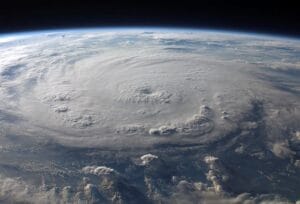Water is vital for life to grow and flourish. Although effective management of this priceless natural resource has become a massive challenge in recent years. Sustainable water management is indispensable for our future, to ensure long-term availability of water for the growing population while making sure that our future generations can access clean water.
A Little On Sustainable Water Management

Sustainable water management is all about taking suitable steps to meet current water requirements without any compromises on the needs of future generations. Thus, it advocates efficient and optimal water usage without wastage, higher conservation and protection of natural water sources, making sure that they’re responsibly used, and of course, equity, i.e. enabling fair water distribution and access for everyone. The need for sustainable water management is all too clear in the current scenario.
Water scarcity is a major issue worldwide, and it will get worse with climate change, unsustainable and poor water management practices across regions, and higher urbanisation. The United Nations has flagged how 2 billion people stay in nations with high water stress levels due to pollution, over-extraction, and wastage. This is why a proper sustainable water management framework is the need of the hour for the whole world.
Sustainable Water Management Techniques
Some of the most effective sustainable water management techniques and methods include:
- Rainwater harvesting- Rainwater harvesting is highly necessary for communities since it helps replenish precious water resources. Rainwater can be gathered and stored for future usage, thereby lowering usage and dependency on conventional sources of water and providing a reliable supply in dry periods.
- Recycling Wastewater- Wastewater can be recycled for industrial usage, landscaping, irrigation, etc. This considerably lowers pressure on supplies of freshwater.
- Improved Methods of Irrigation- Highly advanced techniques of irrigation like sprinkler and drip systems enable better water delivery to the root zones of the plants, lowering runoff and evaporation, and helping save water considerably.
- Other Methods- Some other measures include turning off taps while brushing teeth or shaving, taking shorter baths, fixing leaks immediately, installing low-flow water fixtures, and limiting water hoses for cleaning outdoor zones or car washing.
- Technology-Driven Measures- Several tech-based sustainable water management measures can also be implemented. One such endeavour is Planet Sim, a pioneering solution offered by Planet Smart City. It offers smart water consumption tracking, optimal and automated distribution, and delivery, flagging over usage, inefficiencies, abnormalities, and leak detection systems with real-time alerts. Real-time forecasting and analytics are another advantage of the system, along with early flagging of inefficient practices or leaks. Societies or industrial units also get assistance with suitably designed infrastructure for lower water wastage, including proper appliances to save water and also through optimized irrigation technologies.
Final Thoughts
With the right water management system, we can successfully conserve water for future generations while managing it optimally without generating waste. Such systems can also promote responsible water usage and automate common water pumps based on real-time water levels, enabling savings of 1.5 billion litres. So, without any delays, invest in a more sustainable system of water management for your community at the earliest.
FAQs
Challenges include:
Water scarcity due to overuse and climate change.
Pollution from industrial, agricultural, and urban sources.
Aging infrastructure and inefficient water systems.
Lack of awareness and governance issues.
Technology plays a critical role through:
Smart water meters and sensors for efficient monitoring.
Advanced treatment systems for wastewater recycling.
Data analytics for better decision-making and resource allocation.
Communities can:
Adopt water-saving practices at home.
Support local water conservation initiatives.
Participate in awareness campaigns and policy discussions.
Implement rainwater harvesting and greywater recycling systems.
Policies include:
Regulations to limit water pollution.
Incentives for water-efficient technologies.
Integrated water resource management (IWRM) frameworks.
International agreements on transboundary water sharing.
Households can:
Install low-flow faucets and showerheads.
Collect and reuse rainwater.
Use water-efficient appliances (e.g., washing machines, dishwashers).
Practice mindful water use (e.g., shorter showers, turning off taps when not in use).
Initiatives include:
The United Nations Sustainable Development Goal (SDG) 6: Clean Water and Sanitation.
World Water Day campaigns.
International partnerships for transboundary water management.
Funding programs for water infrastructure in developing nations.











